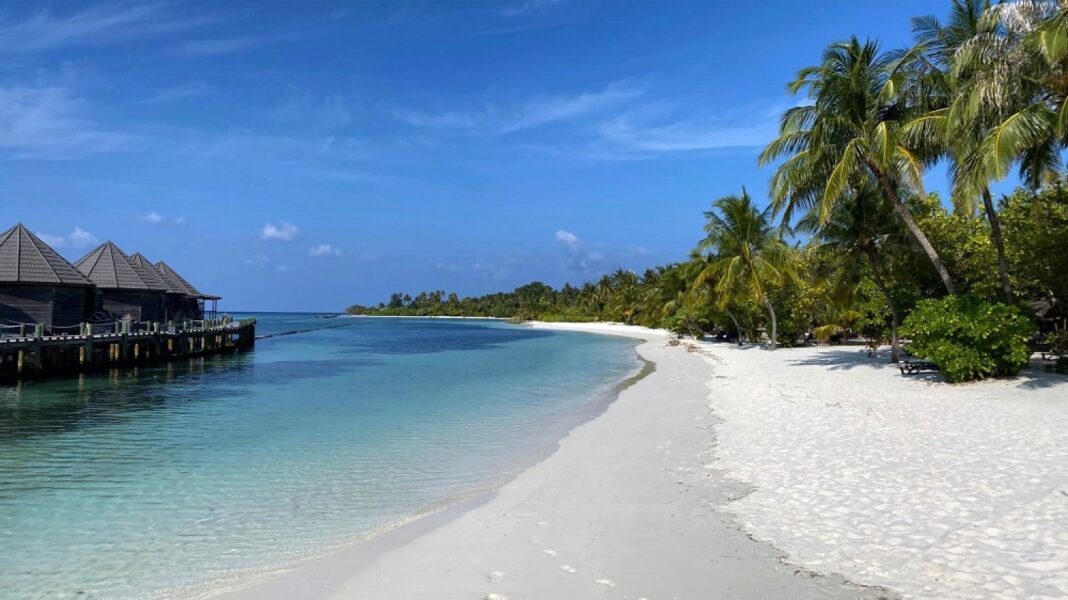|
Getting your Trinity Audio player ready...
|
State Dept Advises Against Travel to the Maldives Due to Potential Terror Attacks
Edited by: TJVNews.com
The Maldives, a picturesque archipelago in the Indian Ocean, is renowned for its pristine beaches, crystal-clear waters, and luxury resorts that attract honeymooners and tourists from around the world. However, beneath this facade of paradise lies a complex socio-political structure governed by Sharia law, which presents a stark contrast to the liberal and indulgent experiences marketed to international visitors.
The Maldives is a Muslim-majority nation where Islamic principles deeply influence the legal and social frameworks. The country’s constitution mandates that all citizens must be Muslim, and Islamic law (Sharia) is the foundation of the legal system. This governance model affects various aspects of daily life, including dress codes, dietary restrictions, and moral conduct.
The consumption of alcohol and pork is strictly prohibited for Maldivian citizens. These items are available only in tourist resorts, highlight a clear dichotomy between local laws and tourist practices.
Modesty in dress is enforced, particularly for women, who are expected to cover their bodies in public. This contrasts sharply with the relaxed dress codes in tourist resorts where swimwear and nudity in private pools are commonplace.
Public displays of affection and cohabitation without marriage are prohibited and can lead to severe penalties. The conservative societal norms stand in contrast to the freedoms enjoyed by tourists, however, same sex couples who visit the resorts in The Maldives are strongly advised not to display any signs of public affection.
The Maldivian government also imposes strict controls on freedom of speech and expression. Criticism of the government or Islam can lead to severe repercussions, including imprisonment.
In June 2023, the U.S. State Department issued a travel advisory for the Maldives, urging tourists to exercise increased caution due to potential terrorist activities. The advisory emphasizes the risk of terrorist attacks, which may occur with little or no warning. Potential targets include tourist locations, transportation hubs, markets, shopping malls, and local government facilities. The possibility of attacks on remote islands further complicates the security situation, as it could lengthen the response time of authorities.
The State Department also urged would be tourists to the Maldives to avoid large gatherings as they can be unpredictable and may become targets for attacks Moreover, locations popular with Western tourists may be more likely targets for terrorism.
In addition to the above precautions, the State Department said travelers should adopt practical safety measures to enhance their security. Tourists are advised to be aware of their surroundings as vigilance is key. Flexibility in travel plans can be crucial. Be prepared to adjust itineraries based on evolving security conditions. Tourists are also advised to keep communication lines open by regularly checking in with family or friends in order to ensure that someone knows your travel plans and can reach you in case of an emergency.
The recent decision by the Maldives government to ban Israelis from visiting the Indian Ocean archipelago raises significant ethical and moral concerns. This move comes as a reaction to the escalating conflict in Gaza, with public anger in the predominantly Muslim nation driving the government’s policy change. The ban on Israeli passport holders from entering the Maldives and the establishment of a subcommittee to oversee this process is a step that warrants careful examination.
The Maldives’ decision to prohibit Israeli visitors stems from the current geopolitical tensions surrounding the Israel-Gaza conflict. The Maldivian government, led by President Mohamed Muizzu, announced the ban on Sunday and indicated plans to appoint a special envoy to assess Palestinian needs and initiate a fundraising campaign to support Gaza. While this decision might be seen as a gesture of solidarity with the Palestinian cause, it raises profound ethical and moral questions about collective punishment and discrimination.
Banning individuals based on their nationality constitutes a form of collective punishment, which is widely regarded as unjust and unethical.
The ban discriminates against individuals solely on the basis of their nationality, violating basic human rights principles that advocate for equal treatment and non-discrimination. Every person, regardless of their country’s political actions, should have the right to travel and engage in cultural exchanges.
Nearly 11,000 Israelis visited the Maldives last year, contributing to the tourism sector, which is a significant part of the Maldivian economy. Tourism fosters cultural exchange and mutual understanding, which are essential for global peace and cooperation. By banning Israeli tourists, the Maldives risks not only economic repercussions but also the loss of opportunities for cultural diplomacy.
Israel’s Foreign Ministry has already advised Israelis to avoid travel to the Maldives, reflecting the immediate diplomatic and personal impacts of the ban.
The Maldives’ decision to ban Israelis from entering the country is ethically and morally problematic. It enforces collective punishment, promotes discrimination, and hinders efforts toward peace and mutual understanding.
While the Maldives offers luxurious experiences, the underlying governance by Sharia law and recent political decisions pose significant risks and ethical concerns for Western travelers. The stringent legal environment, potential security threats, and discriminatory policies such as the ban on Israelis highlight the need for serious reconsideration when planning a visit.
Travelers seeking a safe, inclusive, and ethically sound vacation destination may find it prudent to look beyond the Maldives. By choosing destinations that uphold principles of human rights, religious freedom, and non-discrimination, tourists can contribute to a more just and harmonious global community while ensuring their safety and well-being.




